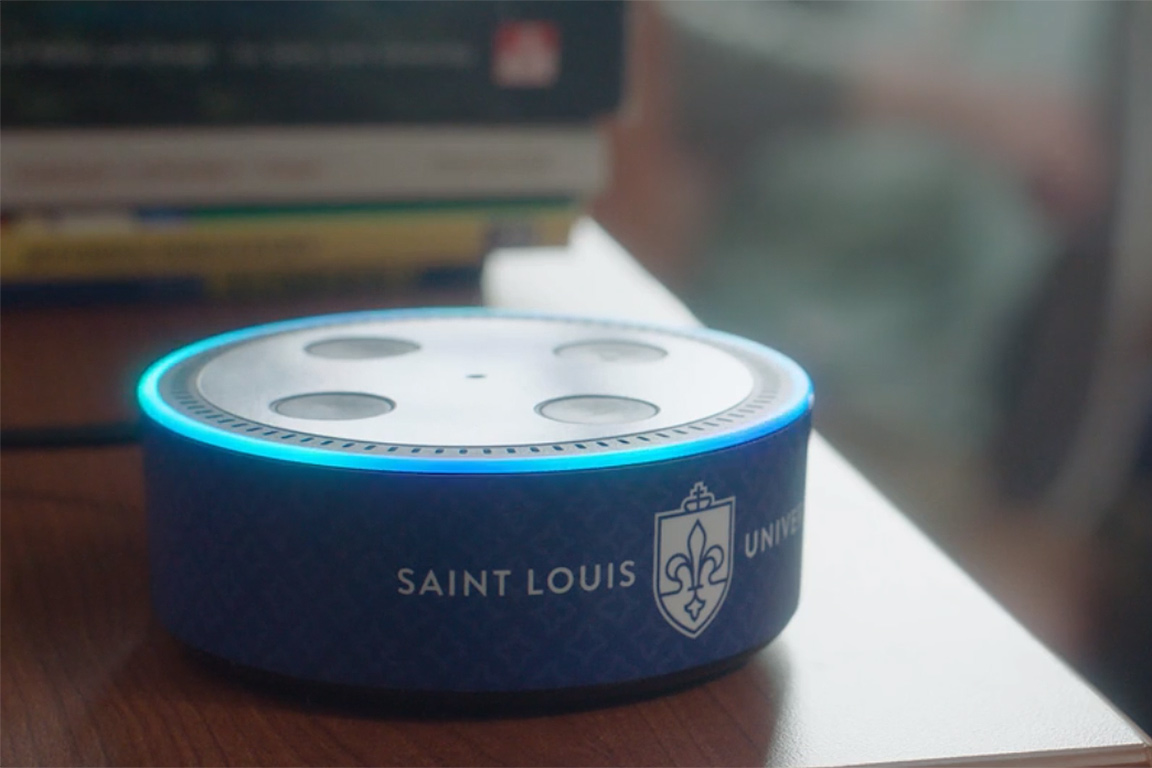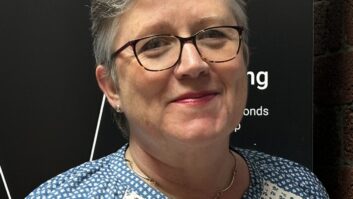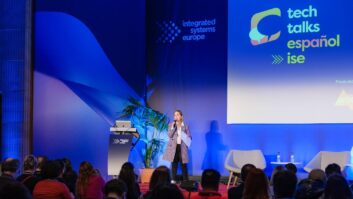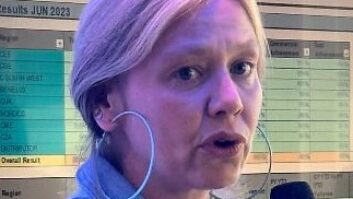
The market for digital assistants has rocketed in recent months and years as mass market and largely affordable ‘smart speaker’ products become more widely available and accessible.
Indeed, some forecasts suggest user numbers for smart speakers is growing at an annual rate of around 48 per cent, with products sales set to hit 90 million this year.
Usage is not as the adverts on TV would suggest, simply for providing spoken recipes or turning on loud music in a sleep loving teenagers bedroom. Their potential is vast and varied and examples of use can be found in many different environments…including student halls of residences.
In August, Saint Louis University (SLU) in Missouri, took the decision to install 2,300 customised Amazon Echo Dot devices into its student accommodation, providing students with a new way of accessing information they need related to the university, whilst also relieving pressures on its own academic staff.
David Hakanson, Vice President and chief information officer at the university, tells us more.
When did you first start looking at introducing digital assistants into student accommodation?
The process began in the spring of 2018 when we conducted a pilot program in the residence halls consisting of 20 Amazon Echo devices and 20 competitor devices.
What was your primary motivation?
When evaluating voice technology we identified this as a potential opportunity to provide students with faster access to information. Instead of searching for information online (library hours, events on campus) we believe the Alexa platform can provide that information quickly and conveniently.
What are the key benefits provided to students?
Students have more immediate access to commonly asked questions, and a highly convenient way to find out what is going on around campus. The system helps students be more productive by providing their own virtual assistant that helps with SLU and non-SLU questions.
Specific to the University, what can students ask and how were these questions selected?
Students can ask over 130 questions. The questions were selected by checking with several administrative offices (Residence Life, Registrar’s Office, IT, etc.) as well as soliciting feedback from students. The University will be regularly updating the SLU skill based on student feedback.
This is a sizeable investment when, presumably, students can simply go online and find the information?
Most of the information can be found online, but it is not always easily accessible or able to be located within a few seconds. Our goal is to help students get answers to questions in a matter of seconds rather than having to seek out the information, which can take several minutes.
What was the process in turning SLU specific questions into something that can be verbally understood and answered?
We worked with a partner, n-Powered, that specialises in creating Alexa skills. The partner was able to take the questions we selected and build them into a custom skill for SLU.
Do you expect the introduction of the products to help benefit other areas of the university, i.e. reduce calls to the switchboard or to academics?
Yes, we plan to expand the service to other parts of the University. We have not announced which areas we will explore for future expansion.
It’s currently only available for students living on campus. Is this something that could be extended outside?
Yes, we expect to make the SLU skill public so that our students not living on campus can access the same information.
You’ve chosen Amazon’s Alexa enabled Echo Dot devices. Why did you choose these?
The devices were selected after conducting the pilot program in the spring. The Amazon Echo device was most favoured by students.
How long did the installation of the 2,300 devices take?
The installation of the devices took approximately one week. We worked with Amazon and n-Powered to assist with streamlining the process.
Tell us about the pilot testing process and how it was received?
Students were able to volunteer for the spring pilot program. We conducted several surveys throughout the pilot program, and met with the students at the end to get an overview of their experience.
With students attending the university from all around the world, just how good and accurate is the product when receiving voice commands?
During our testing we found that the product was effective. We will continue to seek feedback over the fall semester to understand if our international students experience any issues.
Do students require any level of training to use the devices?
No training is necessary to use the devices. When the Amazon Echo Dots were installed in each room we also included a flyer that provides an overview of how to use the device.
What about security?
Using Amazon’s Alexa for Business program, the devices are managed centrally and not tied to any specific individual. The devices do not need to be associated with one or more students and therefore they do not recognise who is speaking. The SLU skill is also only accessing publicly available information. If individuals have any concerns with the device they are able to mute the microphone or unplug the device.
Are there any restrictions put on the devices?
Since the devices are managed centrally, students are not able to add their own accounts for music services, such as Pandora or Spotify.







